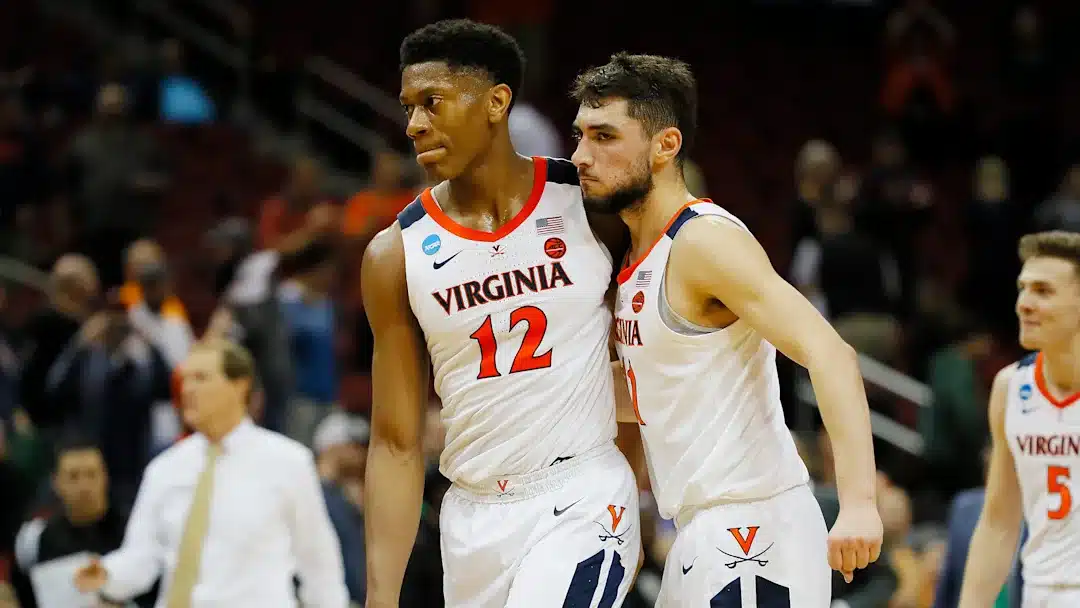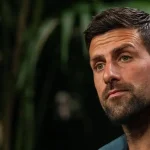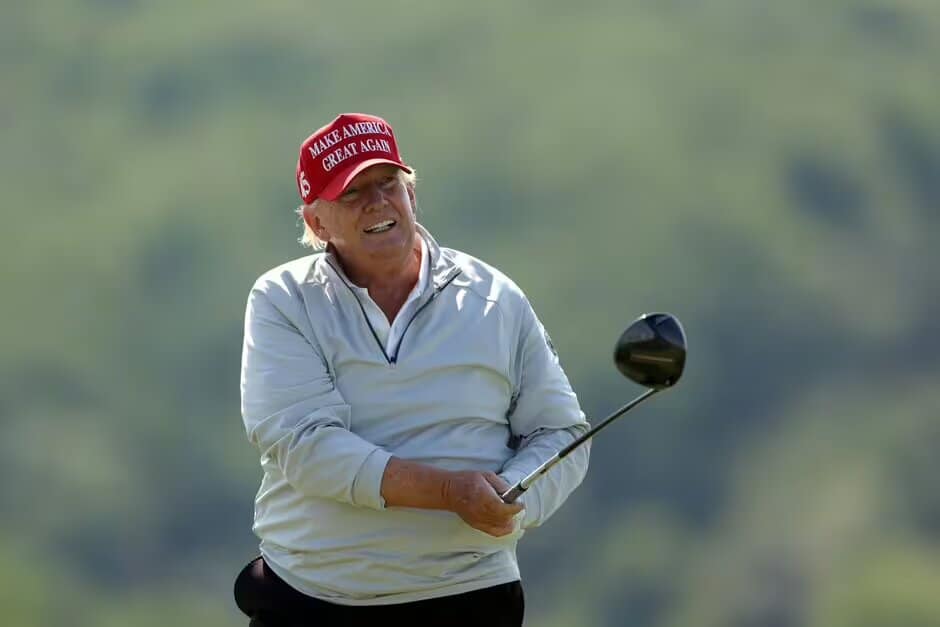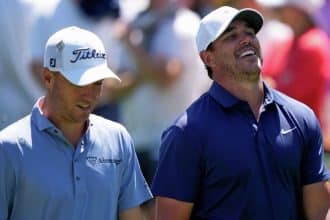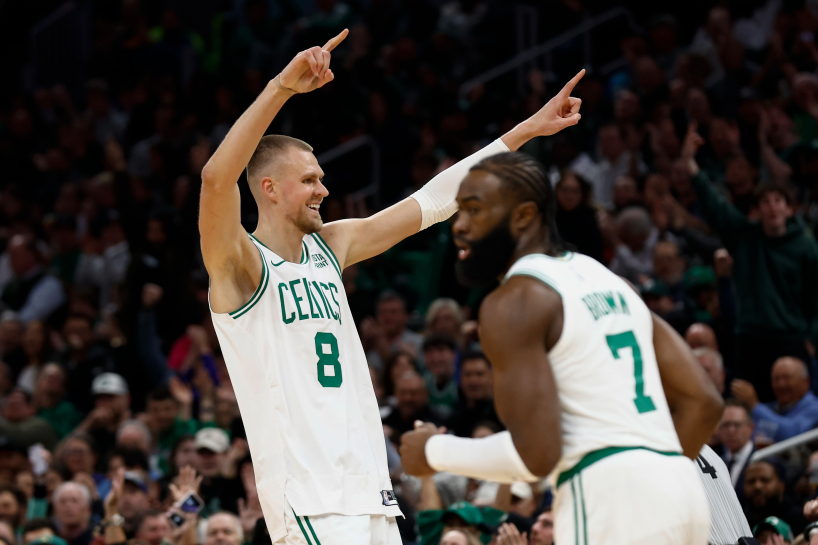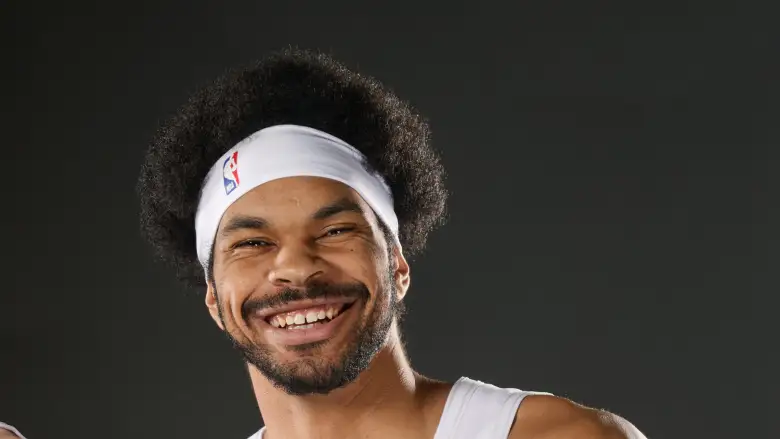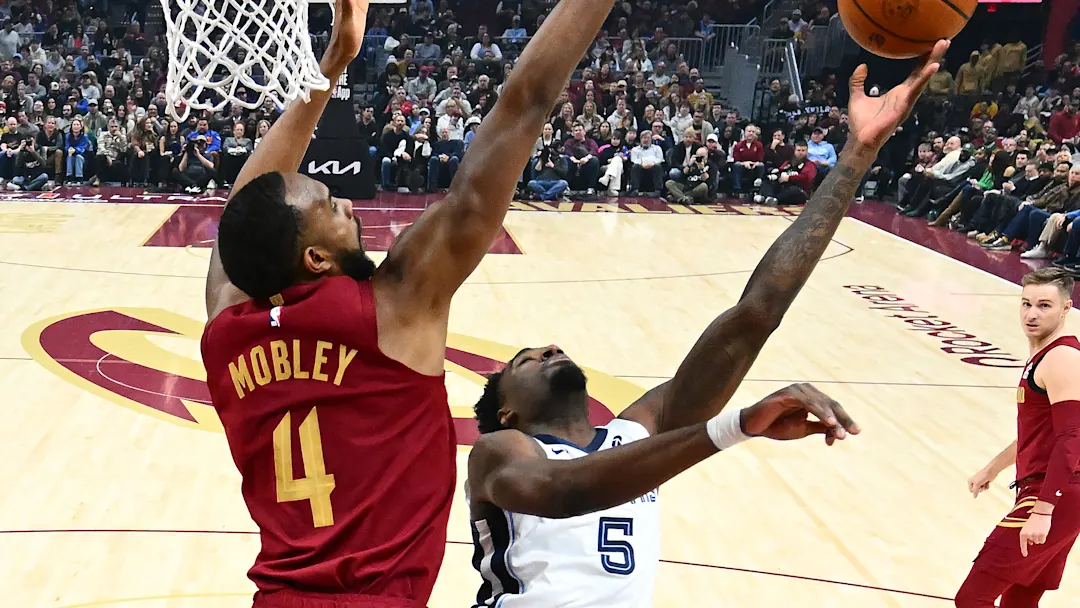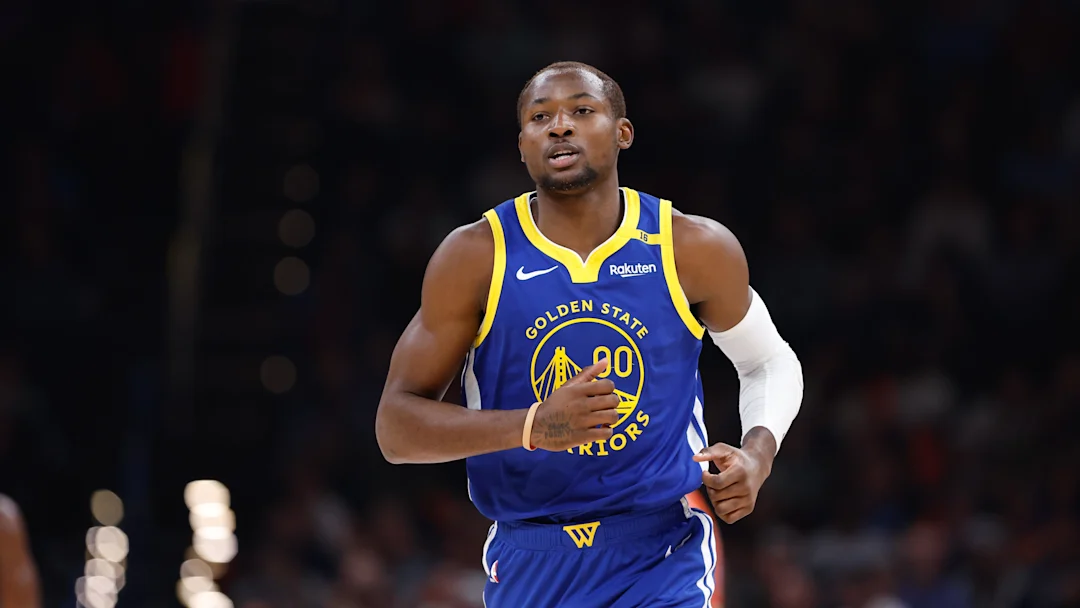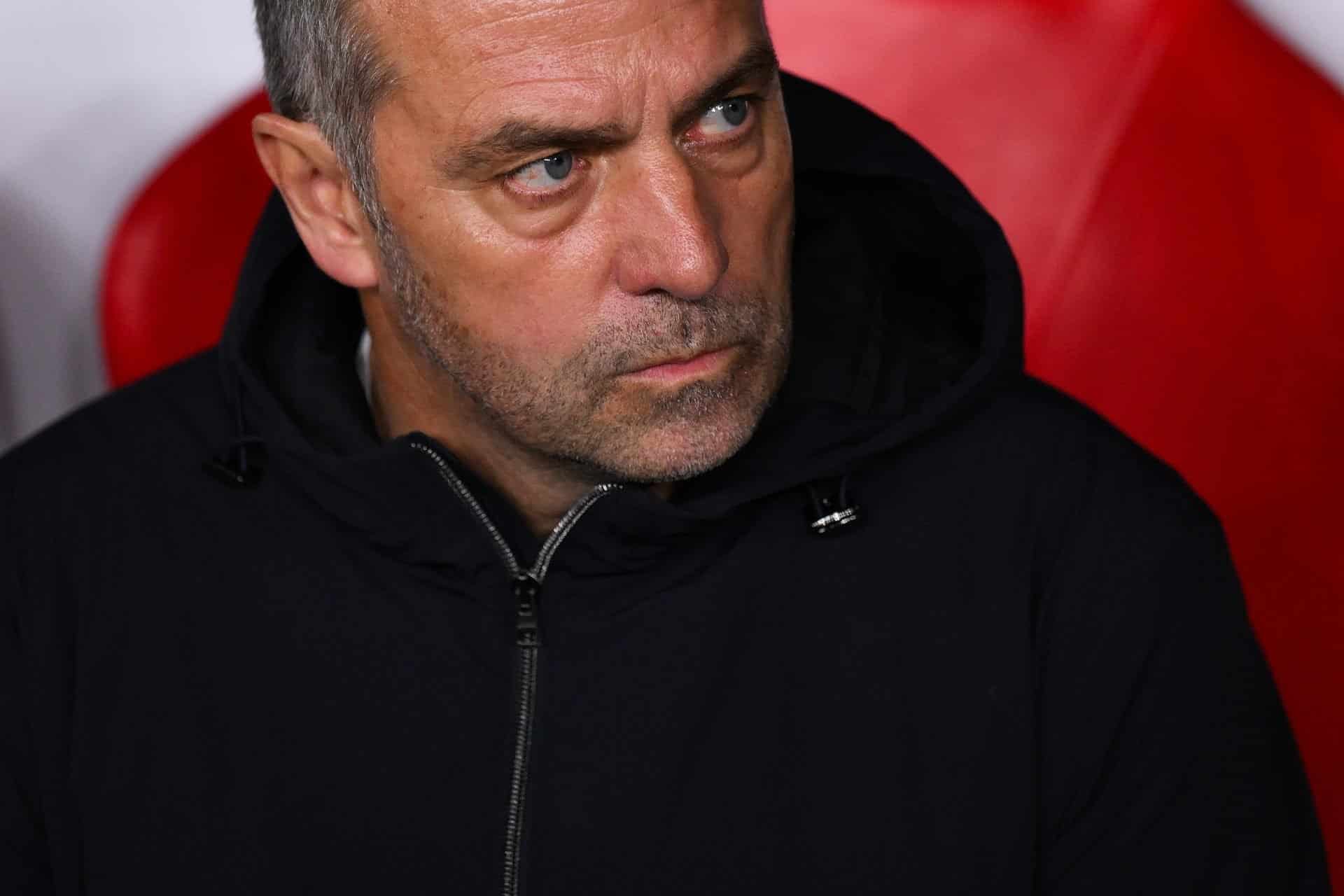The Cleveland Cavaliers made a bold move at the trade deadline, acquiring De’Andre Hunter in a major push for contention—and in doing so, they also reunited him with his best friend, Ty Jerome.
Hunter has developed from a college star into one of the NBA’s top big-wing role players. This season, he emerged as the Atlanta Hawks’ second-leading scorer, averaging 19 points per game while shooting nearly 40% from three.
At 6’8”, he possesses the tools to be a strong defender, though his advanced metrics haven’t fully reflected his potential due to Atlanta’s defensive struggles.
The Cavaliers view Hunter as the missing piece in their championship puzzle. At 27, his age and long-term contract align with Cleveland’s timeline, making him both an immediate impact player and a key piece for the future.
If the Cavs can tap into his defensive upside and continue refining his offensive game, Hunter could carve out a lasting legacy in Northeast Ohio sports history.
Cleveland’s president of basketball operations, Koby Altman, has already expressed confidence that Hunter will elevate the team—not just this season, but for years to come. In the short term, his presence could have major implications for the Cavaliers’ offseason plans.
The Cavaliers are getting expensive fast
In exchange for De’Andre Hunter, the Cavaliers sent Atlanta Caris LeVert’s expiring $16.5 million contract and Georges Niang’s declining $8.5 million deal. Hunter, meanwhile, will earn $23.3 million next season and $24.9 million ahead of free agency in 2027. The trade not only bolstered Cleveland’s wing depth but also helped them dip below the luxury tax apron—though that financial flexibility will be short-lived.
According to Spotrac’s Multi-Year Cap Sheet, the Cavaliers are projected to exceed the second apron by $2.5 million this summer, with just 10 players under contract.
Hunter will hold the team’s fourth-highest salary, as Jarrett Allen’s maximum extension kicks in the following season.
Beyond the core four and Hunter, only Max Strus, Isaac Okoro, Dean Wade, Jaylon Tyson, and Craig Porter Jr. have guaranteed deals. Meanwhile, Sam Merrill and Ty Jerome will hit unrestricted free agency in 2025.
Crossing the second apron was inevitable after Cleveland handed out maximum extensions to Donovan Mitchell, Evan Mobley, and Allen, with Darius Garland’s deal already in place. Hunter’s addition further inflates the payroll, but he provides the Cavs with a long-term solution at small forward if he continues his upward trajectory.
Trading LeVert did more than just clear space for Hunter—it also reshaped the Cavaliers’ backcourt rotation. His departure solidifies Ty Jerome as the team’s de facto third guard and second-unit leader.
After missing nearly all of 2023-24 due to injury, Jerome has been one of the league’s biggest surprises, averaging a career-high 11.3 points per game and emerging as a key factor in Cleveland’s success through 52 games.
Typically, teams have an easy time retaining their own free agents, but Jerome’s situation presents unique complications heading into the offseason.
Cleveland’s Jerome money problem
Cleveland’s front office made getting under the luxury tax a priority this season—not because they doubt the team’s ability to contend for a title, but to extend their championship window by another year or two. Under the new Collective Bargaining Agreement, top-spending teams face harsh penalties, making the luxury tax more than just an arbitrary threshold—it can dictate the long-term viability of a franchise’s success.
For the Cavaliers, the first major challenge will be finding a way to retain Ty Jerome. In 2023, Jerome signed a two-year, $5 million deal, but because he wasn’t with the team long enough to earn full Bird Rights, Cleveland is restricted in what they can offer him in free agency.
Under league rules, the Cavaliers can offer Jerome up to 140% of his previous salary (roughly $3.6 million annually) or the league’s average salary—whichever is higher. Given Jerome’s strong play this season, the average salary will likely be the better offer. However, teams with more financial flexibility could view him as a valuable addition and outbid Cleveland for their top bench contributor.
Ultimately, the Cavaliers could lose Jerome in free agency. Fortunately, because he will be an unrestricted free agent, he has the option to take a smaller deal if he believes Cleveland is the best fit. This is where De’Andre Hunter’s arrival could play a pivotal role in shaping Jerome’s future with the team.
De’Andre Hunter could convince Jerome to stay with Cavaliers
As widely reported, Ty Jerome and De’Andre Hunter share a close friendship. The duo won the 2019 NCAA Division I Men’s Basketball National Championship together at the University of Virginia—ironically, also with a team called the Cavaliers.
Since their college days, Jerome and Hunter have remained connected, often meeting for dinner whenever their NBA schedules crossed paths. Cleveland has built much of its success on strong locker room chemistry, and Hunter’s arrival is likely to enhance that, particularly for Jerome.
Hunter also shares ties with Darius Garland, as both were part of the same NBA Draft class. If Hunter quickly adapts to Cleveland’s culture, he could be a key factor in convincing Jerome to accept a smaller contract this summer. Jerome has never secured a major NBA payday, so he would be fully justified in seeking one this offseason. However, if he agrees to stay in Cleveland on a short-term, team-friendly deal, the Cavaliers would eventually gain his full Bird Rights, allowing them to reward him more generously in the future.
Jerome and Hunter have already won together once. They complement each other well—Jerome as a tall, crafty-scoring combo guard and Hunter as a versatile 3-and-D wing. While neither is chasing an All-Star nod, they thrive in their respective roles with the Cavs. Keeping them together could be valuable enough for Jerome to prioritize team continuity over a larger paycheck.
Of course, every dollar must come from somewhere. The real question: Will Cavaliers owner Dan Gilbert be willing to foot the bill? If history is any indication, Cleveland fans may already know the answer.
When the Cavaliers are winning, no price is too high
The final question remains: Will the Cavaliers actually pay Ty Jerome?
In theory, since Cleveland is already over the second apron, their best shot at contending is by retaining the talent they have. Once a team crosses that threshold, acquiring new talent becomes significantly harder—they cannot take back additional salary in trades or aggregate contracts. Unless the Cavs plan to offload players, keeping their current roster intact is their best option.
That must include Jerome. Historically, Cavaliers owner Dan Gilbert has not hesitated to spend when winning is within reach. During LeBron James’ second stint in Cleveland, Gilbert consistently shelled out for a high payroll, ensuring the team had championship-level talent around James, Kyrie Irving, and Kevin Love. With three established All-Stars and a premier rim protector at the core, this Cavs squad has the makings of something just as formidable as the mid-2010s roster.
Cleveland fans have little reason to doubt that Gilbert will adopt the same aggressive spending mindset this time around. In his post-trade deadline press conference, president of basketball operations Koby Altman made no mention of financial limitations. Instead, he reaffirmed the organization’s commitment to doing whatever it takes to bring another championship to Rocket Mortgage FieldHouse.
Unless Gilbert suddenly changes course and mandates a return below the second apron, the expectation should be that Cleveland will re-sign its free agents. If Jerome is satisfied with the pay increase the Cavs can offer, they should not hesitate to pay him. The veteran guard has proven to be a difference-maker this season, and if he carries that momentum into the playoffs, his value will only rise. Even at a league-average salary, Jerome would be a bargain.
As the NBA landscape settles post-trade deadline, the Cavaliers should feel optimistic about their all-in move. Hunter’s skill set will make them a more formidable contender on the court, while his connections within the locker room could be crucial in shaping Cleveland’s offseason decisions.

